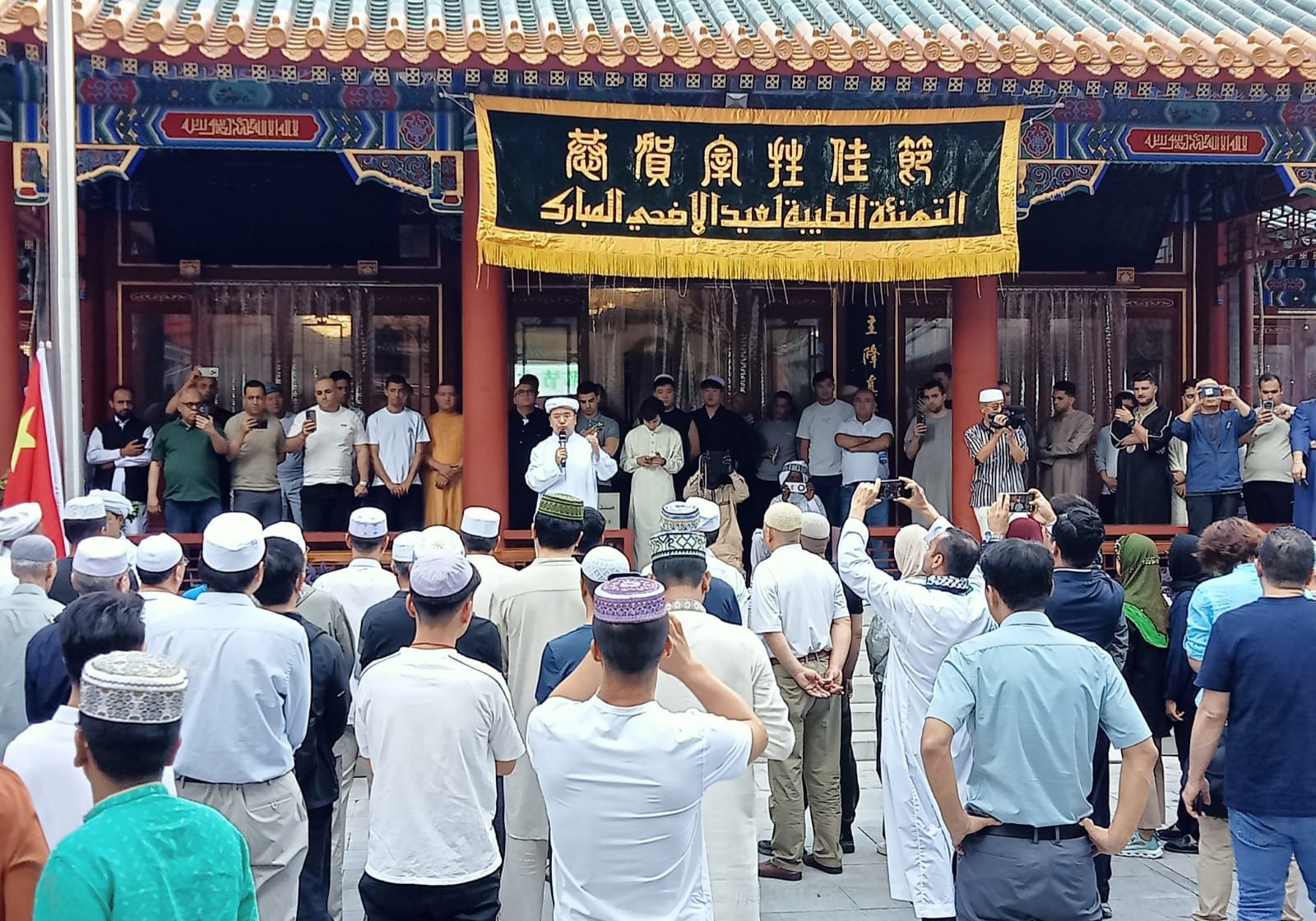Eid-ul-Azha celebrated in China with religious fervour and festivity


Beijing: Eid-ul-Azha, one of the two major Islamic festivals, was observed across China on Friday with profound religious fervour and festive spirit.
Millions of Chinese Muslims marked the occasion with dedication and joy, showcasing their devotion and community solidarity.
The Hui Muslims are the most numerous Muslim group nationwide, with a significant population residing in northwestern China's Xinjiang autonomous region, home to a large Uyghur community.
This diverse geographic and cultural landscape influences how Eid is celebrated across different regions and communities in China.
On Eid morning, thousands of Muslims—both Chinese and foreign—gathered at various mosques to perform Eid prayers.
Separate prayer areas for women were available at many mosques, ensuring they could observe the prayers comfortably and without hassle.
In Beijing, the Niujie Mosque traditionally hosts the largest Eid congregation. However, due to ongoing renovation work, no Eid jamaat was held at the mosque this year. Despite this, the celebrations continued at other mosques across the capital and beyond.
Authorities implemented special security measures at all mosques to ensure the safety of worshippers.
A Turkish citizen, speaking to UNB, said that usually you would not see any security personnel near mosques, but during Eid, forces were deployed to maintain safety and order.
After prayers, congregants exchanged greetings and inquired about each other's well-being. Some mosques also provided fruits, sweets, and locally made foods to those attending prayers, fostering a sense of community and sharing.
Later, people who bought sacrificial animals proceeded to designated areas to slaughter their animals, a key ritual of Eid-ul-Azha symbolising sacrifice and devotion.
Those who do not slaughter animals often celebrate by visiting restaurants to enjoy festive meals.
When asked about celebrating Eid in China, Pakistani national Haseebur Rahman shared, “It's really difficult to celebrate such a festival without family. I am truly missing my home country and loved ones. However, China is a harmonious place where we can offer prayers without any difficulties.”
Beyond the religious rituals, Eid in China is a time for social bonding, festive meals, and charitable activities that strengthen bonds within Muslim communities and promote cultural harmony.
Eid-ul-Azha in China exemplifies a rich tapestry of religious harmony and cultural festivity, reflecting the country’s commitment to multicultural coexistence and mutual respect among diverse faith communities.



